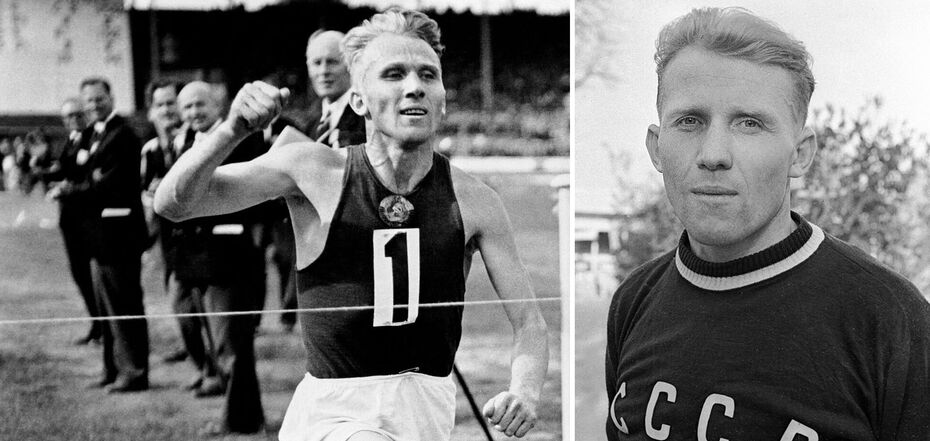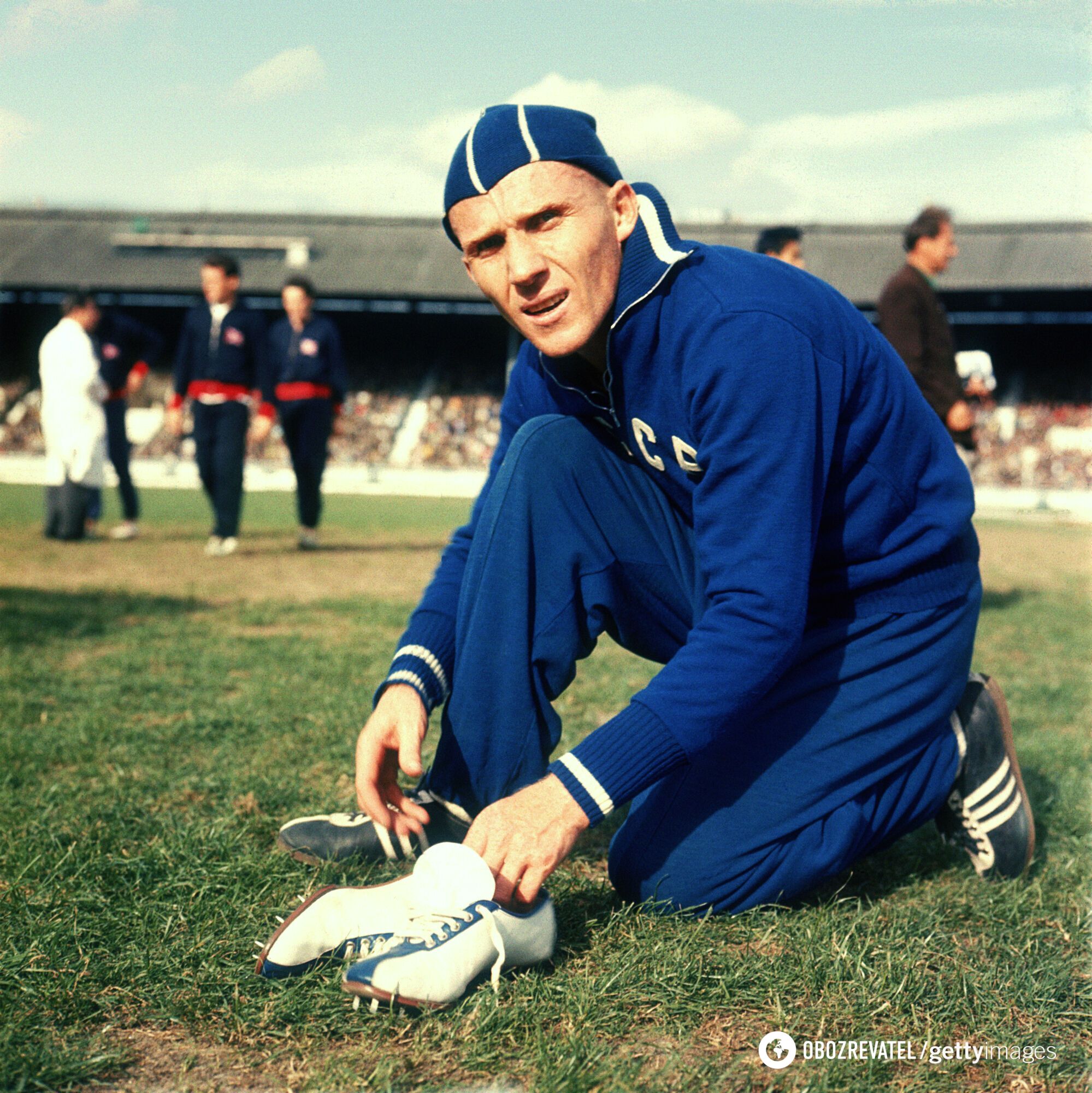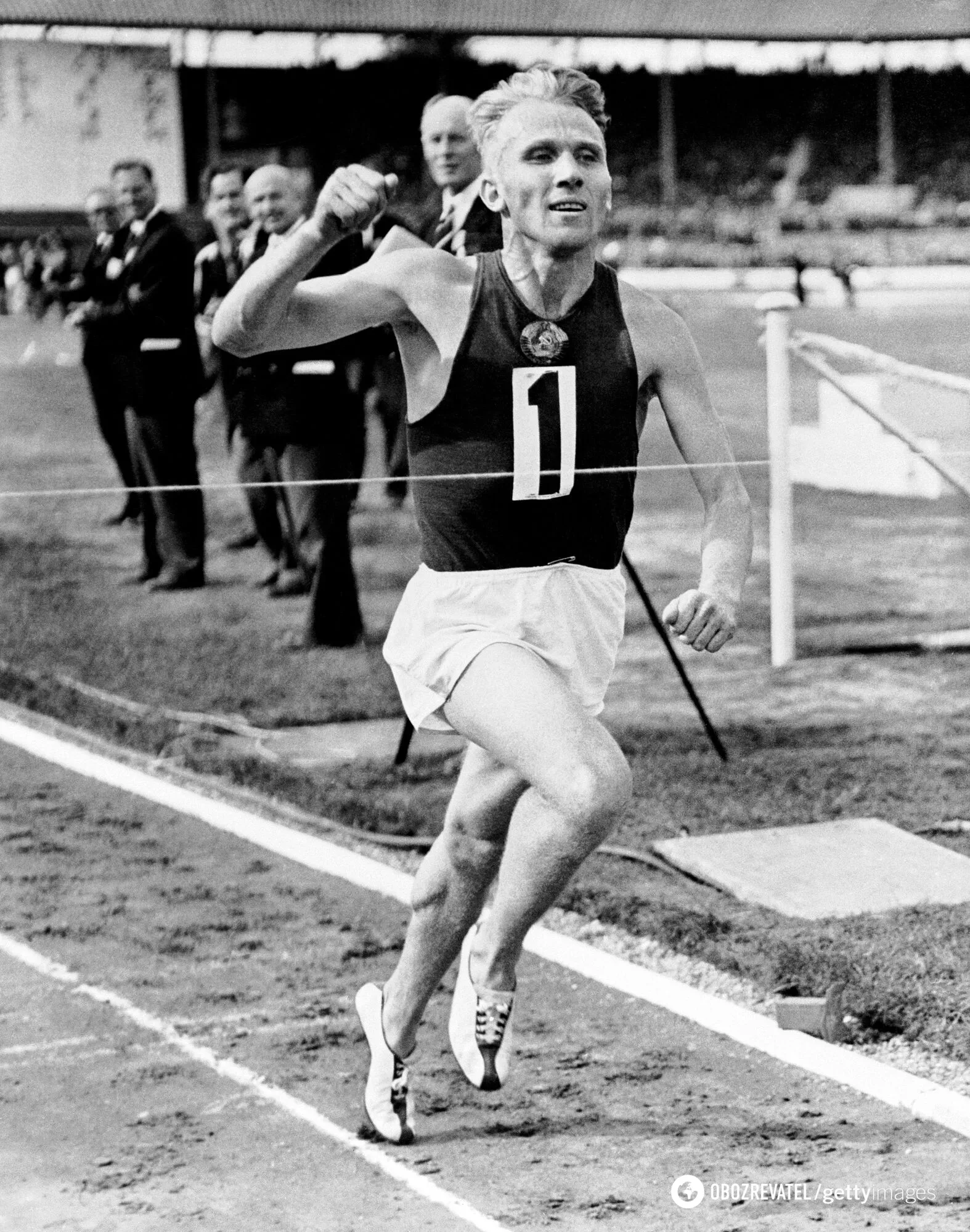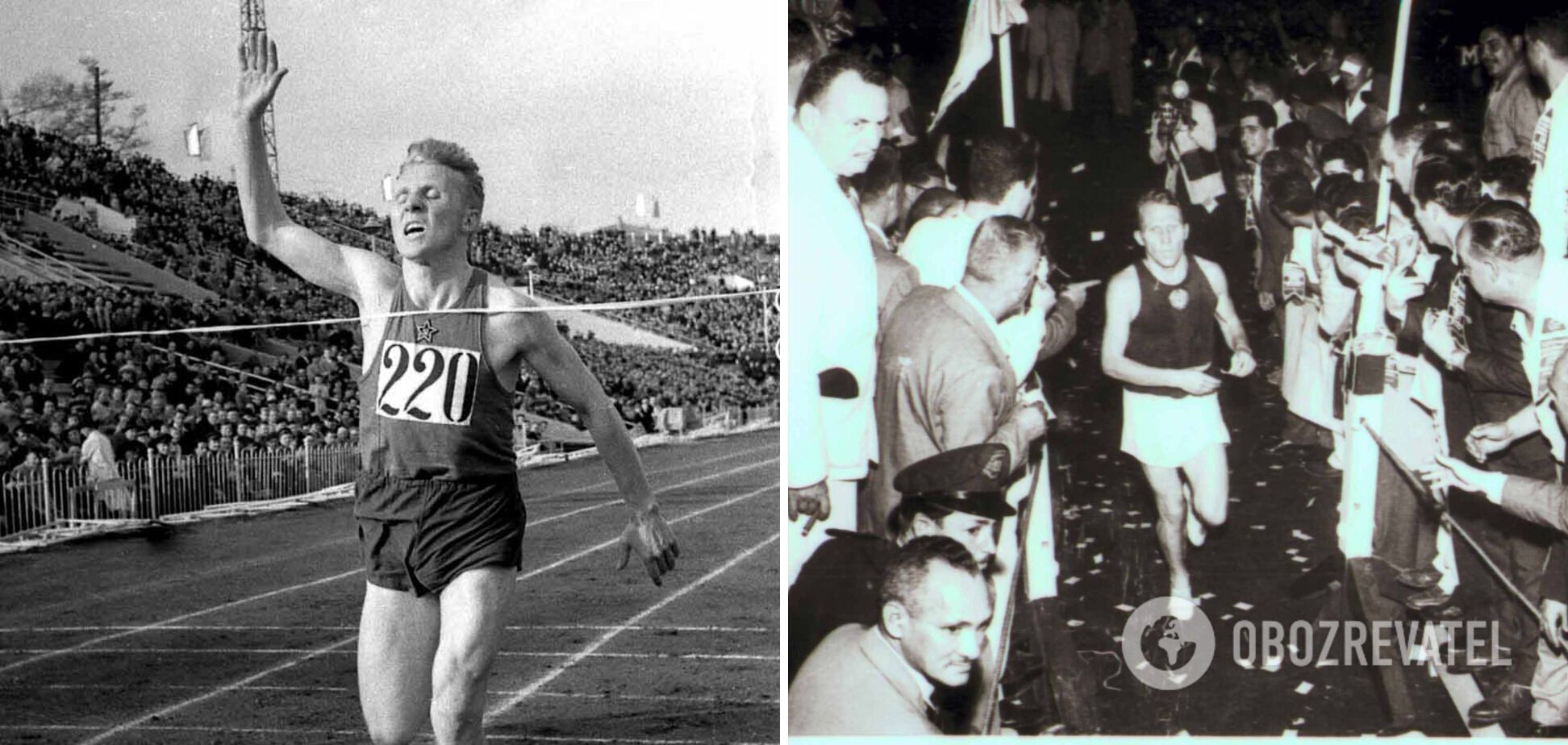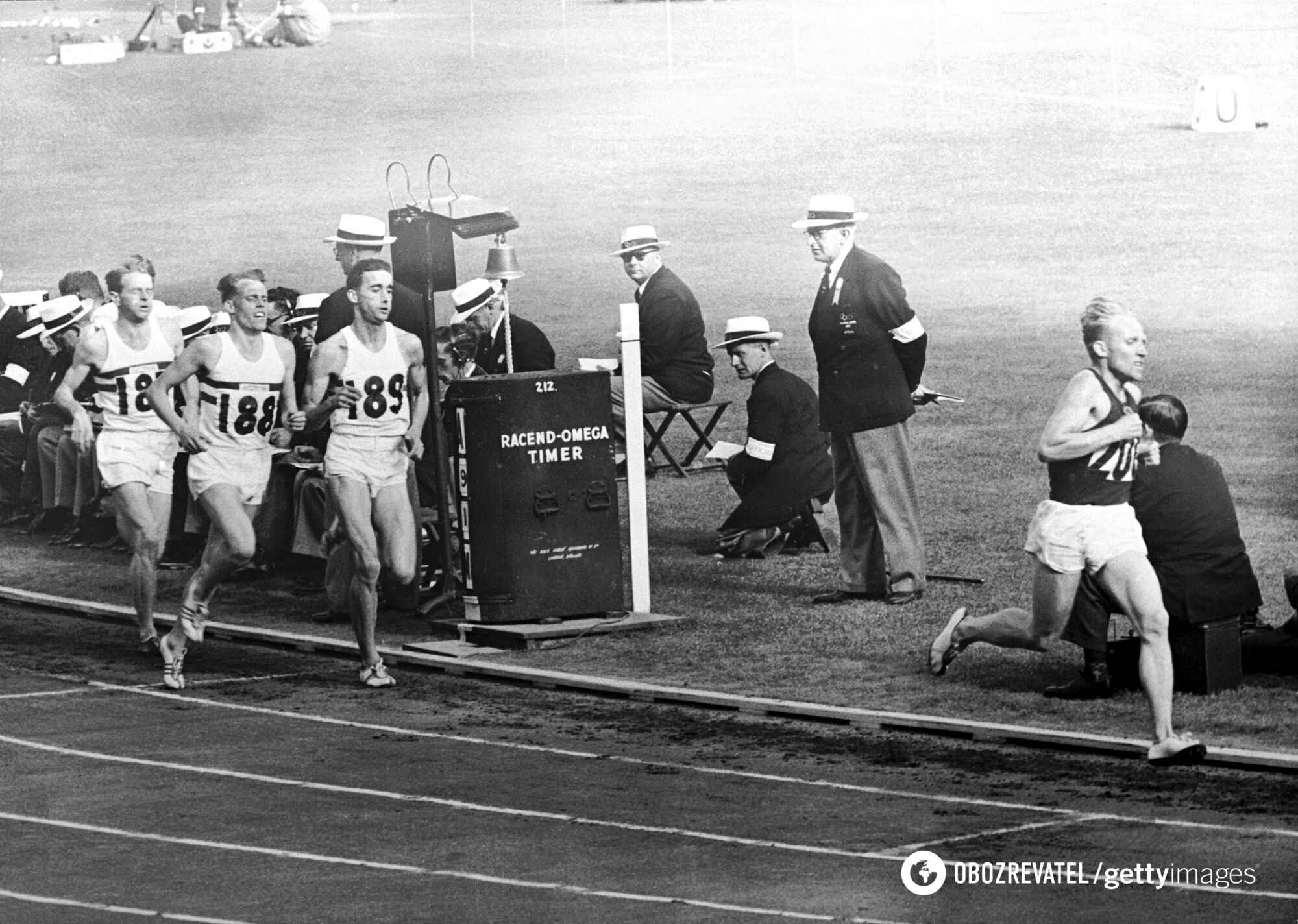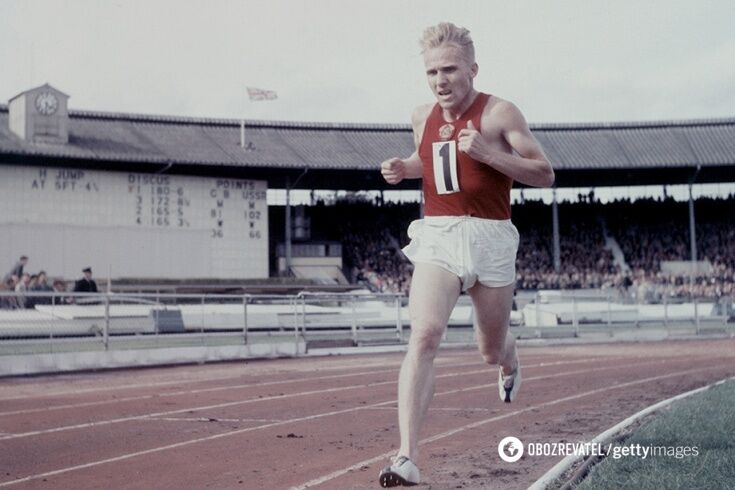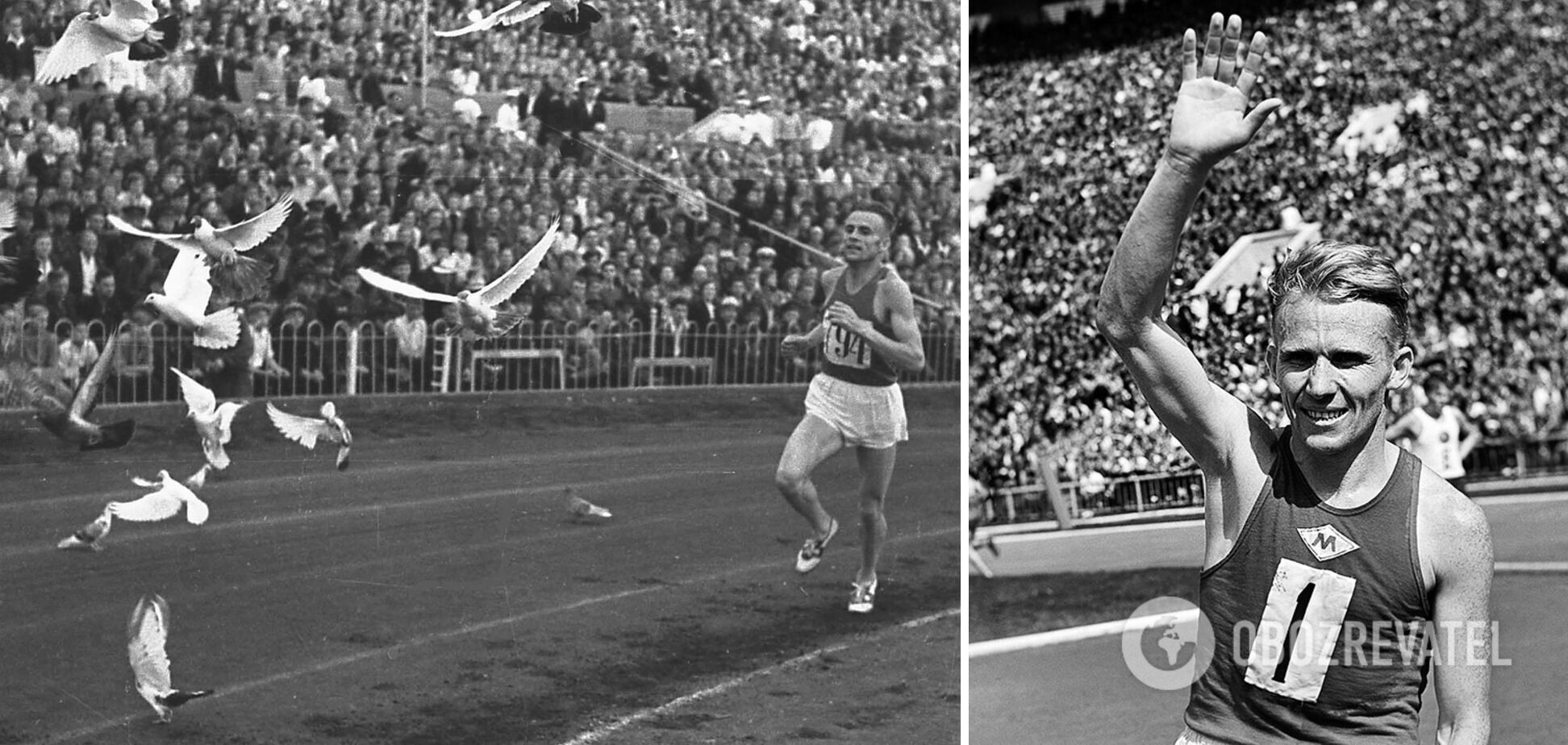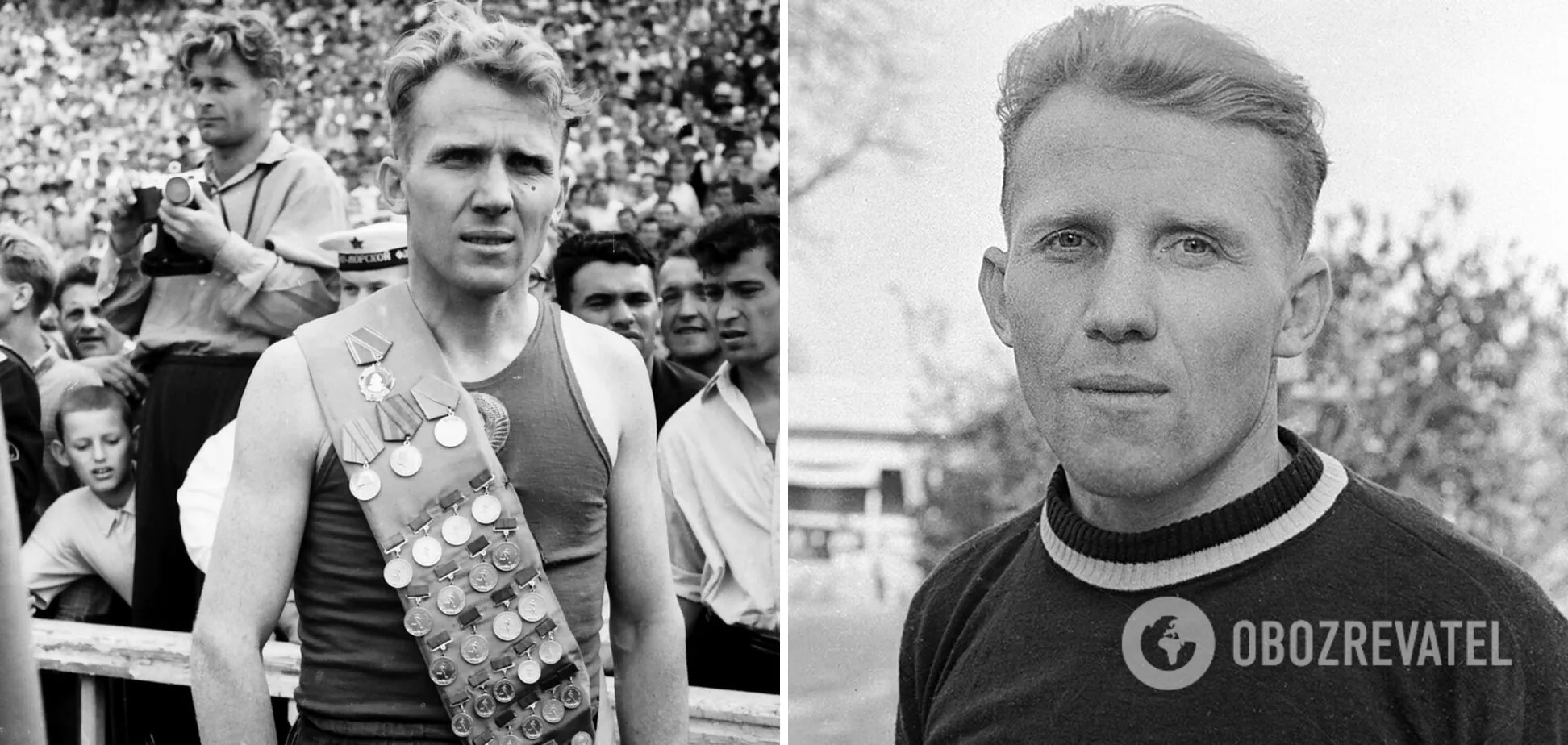Sport
Suicide of the USSR's best runner from Ukraine: why the Olympic star took sleeping pills with vodka and had nightmares
On August 16, 1975, Vladimir Kuts, one of the greatest long-distance runners in the history of athletics, two-time Olympic champion from Ukraine, tragically passed away. The career of the native of the village of Oleksino, Sumy region turned out to be rapid and very bright. However, his body, which was working at the limit, and the merciless Soviet system led to his death at the age of 48.
Vladimir Kuts, the world's best swimmer of the mid-50s, started running in 1945 - at the finish of World War II, during which he served as a sailor in the Baltic Fleet. Moreover, in 1943, a 16-year-old guy credited himself with two years to go to the front.
In the Baltic Fleet, Kuts rose to the rank of petty officer of the first rank, commanded an artillery unit, but according to his close friend, track and field athlete Vladimir Kazantsev, the Ukrainian was tormented by nightmares.
"One day we were returning on a ship from Sweden after a victorious performance. We were standing on deck, and Volodya told me an unexpected thing. He had served in the Baltic Fleet as a minesweeper. Since then he had nightmares almost every night in which mines floated up from the bottom and tore people to shreds. Frankly speaking, I was shocked...," Kazantsev said.
The professional career of the track and field athlete Kuts started already in 1951. When the guy was 24 years old and he began to prepare and show the first results under the guidance of coach Leonid Khomenkov.
In 1953 Kuts, who was born at that time in Kharkov district and lived there until the army, became the USSR champion for the first time, after which he began to stamp victories at international starts. And he confirmed his status as a favorite at the Olympics-1956, winning the 5000 and 10,000 meters.
However, before the Olympics, the foreign press was betting not on Vladimir, but on Australians Lawrence and Stevens and Englishmen Pirie and Chataway. For the straightforward style of running Kuts sports columnists called "robot" and "man-machine" ... One Melbourne newspaper asked, "Can a 'robot' beat a thinking athlete?" And then answered: "No, in a tricky fight, athletes like Kutz can't win."
Later Vladimir admitted that these statements upset him, and he was going to the Games with one desire - to perform successfully and prove that all these experts were mistaken. The first time a runner amazed the world was on November 23, 1956, during the 10,000-meter race.
"After the shot, I immediately broke from the middle of the front row and offered the pace that I had calibrated in training: the first lap - 61.4 sec. It's a normal pace for me, but it doesn't suit many rivals. Piri is following me. He is true to his usual tactics. He wants to follow the leader to victory, and maybe to a new world record...," Kuts recalled in his diary.
Vladimir offered his rivals a "jagged run", exhausting his opponents with a sharp increase in speed and an equally sharp decrease in speed: "There were still more than 3 kilometers to the finish line, when many people finally decided that the gold medal was in the hands of Englishman Piri. And at this time I was preparing for the last, decisive breakthrough, which, according to my plan, should have followed on the 20th lap."
Kutz even allowed the Englishman to take the lead, and when he saw his slumped figure, and on his face - the ultimate fatigue, he undertook a decisive acceleration: "The last drop, apparently, overflowed the cup of fatigue Piri. And here was the 25th and final lap. I did it in 66.6 seconds. I was literally flying to the finish line..."
The first Olympic victory of the USSR representative on November 28 was followed by a gold medal in the 5000 meters. Having taken the lead from the start, Vladimir finished with a new Olympic record. It was said that after 10,000 meters Kuts could hardly stand on his feet, let alone run, and instead of fingernails there was a blue swelling. But he was persuaded to start on the "five" by the head of the Soviet delegation, promising even a general's pension.
And Roger Bannister, who called the Ukrainian a "ruthless machine," wrote afterward, "Kutz is not a machine. His brain is as perfectly prepared, his thinking as perfect as his body".
Kutz's main rival, Briton Gordon Pirie, was simply crushed: "He killed me with his speed and change of pace. He's too good for me. I could never run that fast. I could never beat Vladimir Kuts!"
There were rumors that a blonde beauty tried to "plant" Kuts in Melbourne to throw him off his game. There was also an incident when at a press conference the runner was thrown under his feet with rats painted with red paint. But at the Olympics-1956 nothing could affect the track and field athlete. He became the main star of the Australian Games and decorated all the world's media.
But in 1959, his career ended as quickly as it began. One of the genius runner's weaknesses was alcohol. The Soviet delegation returned from Melbourne on the motor ship "Georgia". The voyage to Vladivostok lasted more than three weeks and, according to eyewitnesses, Kuts went on a heavy drinking binge during the voyage.
However, the cross on the career of Vladimir put not alcohol, but health. The runner suffered from severe stomach and leg pains, which was caused by frostbite while serving in the Navy. After the Olympics in Melbourne doctors found out that he had increased permeability of capillaries in his legs, but even with this diagnosis he still competed until 1959 and set a world record for 5000 meters, which lasted 8 years - 13.35.0.
But after the end of his career Kuts could not find himself in coaching, and without regular training and running he became very fat and weighed more than 100 kg. His condition was aggravated by alcohol, and in 1972 the champion suffered a stroke. In addition, he experienced divorce from his first wife extremely painfully.
And the last straw for Vladimir was the story of his ineligibility for the Munich Olympics in 1972, where Kuts received a personal invitation from the organizers. But taking care of its face, the Soviet authorities were not going to show the world the champion, who after a stroke could only walk with a stick.
The life of the legend turned into a nightmare, and on August 16, 1975, 48-year-old Vladimir died of an overdose of sleeping pills, which he presumably drank vodka. This was reported by stayer Sergei Skripka, who lived in Kuts's apartment at the time. According to him, the coach drank a large dose of medicine at once and washed it down with alcohol. Sergei did not have time to stop the teacher.
It is still unknown exactly whether the act of the Olympic champion was suicide or he accidentally crossed the line, trying to dull the physical and mental pain ... Although most of his acquaintances at the time were inclined to suicide.
Earlier OBOZREVATEL told about the titled gymnast who survived rape in the USSR and raised the flag of Ukraine at the OI-1992.
Only verified information from us in Telegram-channel Obozrevatel and Viber. Do not fall for fakes!


